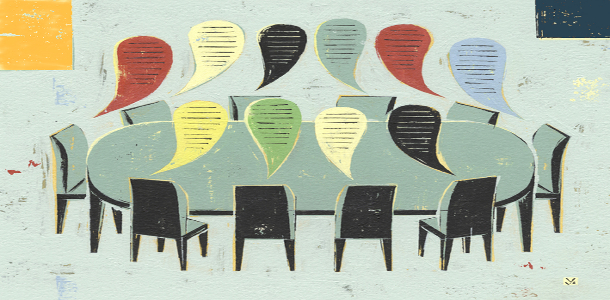Posted by laurajane on Sep 10, 2013 in Uncategorized | Comments Off on 21 questions you might encounter at work





We’ve been verbed
I received an email in which the sender used “PowerPoint” as a verb. “Send me a detailed outline and I’ll PowerPoint it for you.” Oh, the humanity. Verbing, verbification, or denominalization is the process of turning nouns into verbs. It’s a perfectly natural process. As linguist Steven Pinker says, “Easy conversion of nouns to verbs has been part of English grammar for centuries; it is one of the processes that make English English.” Today, we all Google, text, friend, blog, and bookmark. Verbing is how language evolves, but sometimes the results are...

7 troublesome verb pairs
“About half the grammatical errors made in writing are mistakes in the use of verbs.” — Grammar for Journalists In last week’s post, I wrote about the basics of verbs. These words power our sentences, but they can cause trouble even for the most experienced writers and editors. Test yourself on the use of verbs in the following sentence: Sarah (swam or swum) out, (dove or dived) to the bottom and (drug or dragged) the drowned child from the lake. Not sure of the answers? You’re not alone. Troublesome verb pairs trip can trip up anyone. Below is the sentence...

A crash course in verbs
Anyone remember the six primary verb tenses? How about the difference between infinitives and gerunds? Can you name the two forms of verbs? Verbs power our sentences. They show action or state of being or indicate the time of that action or state. As professional writers and editors, we sometimes focus so much on choosing the right verbs that we forget the very basics of these powerful and sometimes troublesome parts of speech. Here’s a brief refresher: Regular and irregular verbs Verbs are classified according to form as regular or irregular. A regular verb...

Posted by laurajane on Aug 13, 2013 in Uncategorized | Comments Off on Terms to make meetings less mind numbing
Terms to make meetings less mind numbing
PR Daily readers spend an inordinate amount of time in meetings—and we all have similar complaints about those meetings. As I wrote in a recent post, people in groups struggle to solve the same kinds of problems they are fully capable of solving on their own. In short, meetings make us stupid. Though we might not be able to avoid meetings, there is a way to make those we attend less mind-numbing. In 2011, I wrote about a game called Word Quest. It’s a creative, brain-building exercise to be played at meetings. All you’ll need is an accomplice. For Word Quest, you and...

Posted by laurajane on Aug 6, 2013 in Uncategorized | Comments Off on 10 ways meetings are dumbing us down
10 ways meetings are dumbing us down
Meetings make us stupid. You’ve long suspected that, but research from Virginia Tech offers affirmation. According to the 2012 study, people in groups struggle to solve the same kinds of problems they are fully capable of solving on their own. The researchers investigated how information about social status and perceptions of social status affected the ability to solve problems. Comparing yourself negatively against others—as might occur in a brainstorming meeting in which everyone shares his or her ideas—alters the way your brain processes information, and it...

Posted by laurajane on Jul 30, 2013 in Uncategorized | Comments Off on 27 modifiers that have been drained of meaning
27 modifiers that have been drained of m...
My 6-year-old loves to use the word epic. “Did you see me jump off the diving board? That was epic.” Or “That game of Uno was epic.” The misuse of epic has long been a pet peeve. As a noun, an epic is an extended narrative poem celebrating the feats of a legendary or traditional hero. It can also be a long film, book, or other work portraying heroic deeds and adventures or covering an extended period of time. As an adjective, epic means heroic or grand in scale or characteristic of an epic. It can also mean impressive or remarkable. This usage gives me the most...

Posted by laurajane on Jul 25, 2013 in Uncategorized | Comments Off on Meet the people behind everyday words












